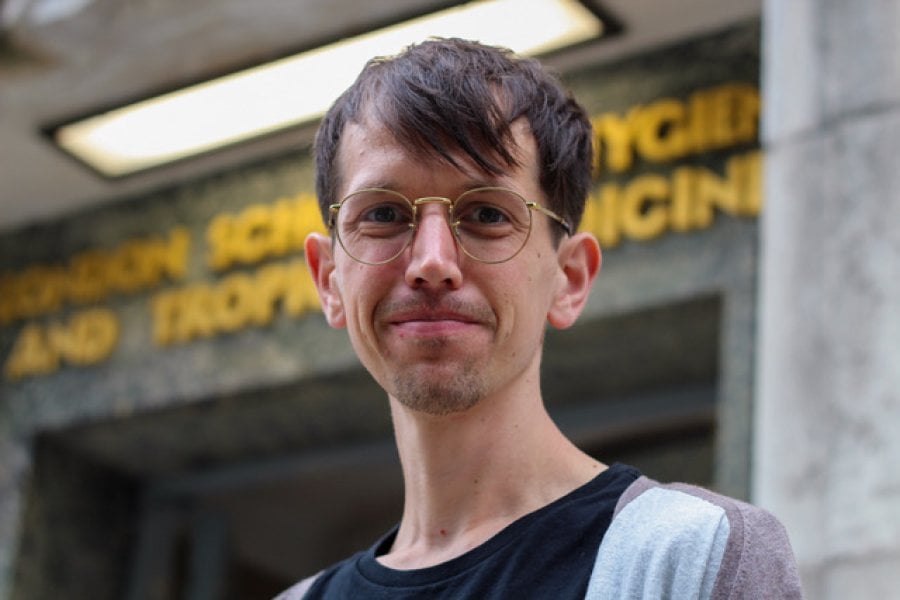
Tell us about your current research
My research currently has two branches. In one, I am using microbiome sequencing data to look at patterns in infant vaccine response. I’m particularly interested in whether gut viruses (or the ‘virome’) may shape the immune response to rotavirus vaccine in low-income settings. In the other, I am co-leading one of the research themes of the HPRU in Immunisation – an ongoing collaboration between LSHTM and the UK Health Security Agency. Here, we are using electronic health records to explore patterns in disease burden, vaccine uptake, and vaccine effectiveness within the UK. Although they may seem distinct, in both of these branches, my aim is to distil complex data in the hope of enhancing our understanding of vaccines.
How did you first become interested in vaccines?
I first became interested in vaccines during my undergraduate degree in biology. I remember a particular lecture that highlighted the immense global burden of measles that has persisted since vaccines became widely available. This is an issue with social/political components (why is vaccine uptake inequitable?) and biological components (why is vaccine protection inequitable?). These are messy and complex areas, but it has been a privilege to explore them in various ways over the course of my career.
Why did you decide you wanted to become Vaccine Centre Co-Director?
I am very inspired by the vaccine research that goes on across LSHTM. The role offers a chance to support and learn from this amazing research community.
What do you hope to achieve during your time as Vaccine Centre Co-Director?
This is a great question, and my answer will probably change on a regular basis. In a nutshell, my hope is to put on events that will connect, engage, and challenge vaccine researchers from across LSHTM, independent of their area of specialty or the country they work in.
What do you find particularly exciting working as a member of the Vaccine Centre?
The range of vaccine research going on at LSHTM is vast, from innovations in vaccine manufacture to cutting-edge clinical research at the MRC Units in Uganda and The Gambia. I have never left a Vaccine Centre seminar without some sort of spark – whether it is a new question to mull over, a paper to read, or a new method to apply.
Where do you think your research will take you?
I wish I knew the answer to this. Often, the unplanned avenues in my career have been the most fruitful. The LSHTM COVID-19 vaccine tracker is a good example of this, starting as a small side project before it grew over the course of 2 years. But a consistent thread has been an attempt to harness the tools of data science to improve our understanding of vaccines. Right now I am particularly interested in how we can use real-world data to better understand patterns in the uptake and effectiveness of vaccines. I hope to do more of this over the coming years.
What do you like doing in your spare time?
Building train tracks with my 2 year-old, running, buying houseplants (but then neglecting them).
What would you consider an interesting fact about yourself you don't mind sharing with us?
I was stung by a scorpion in Belize during an undergraduate field trip. It was the beginning and end of my career in tropical forest ecology.
How can people get and stay in touch with you?
Our postgraduate taught courses provide health practitioners, clinicians, policy-makers, scientists and recent graduates with a world-class qualification in public and global health.
If you are coming to LSHTM to study a distance learning programme (PG Cert, PG Dip, MSc or individual modules) starting in 2024, you may be eligible for a 5% discount on your tuition fees.
These fee reduction schemes are available for a limited time only.
